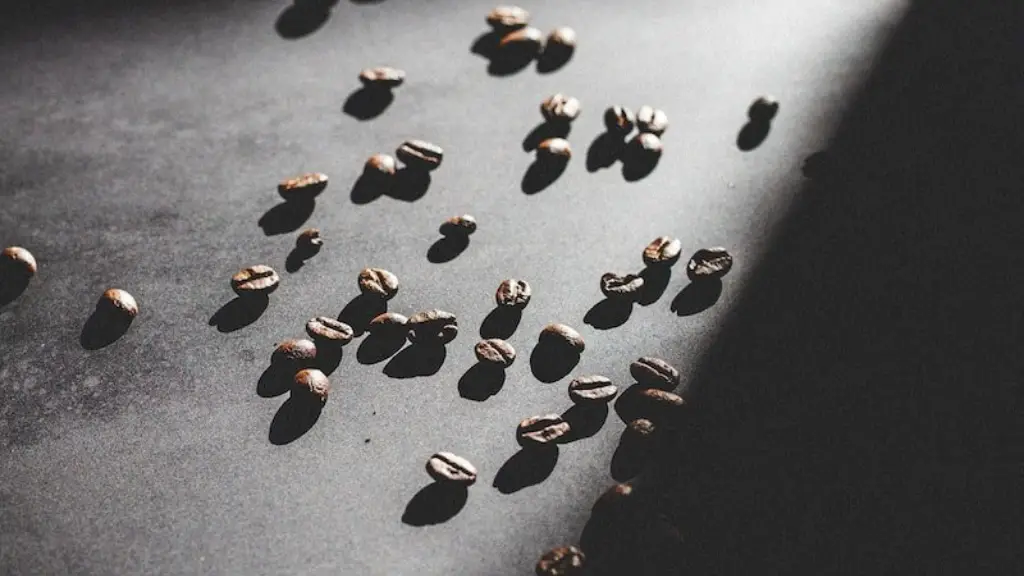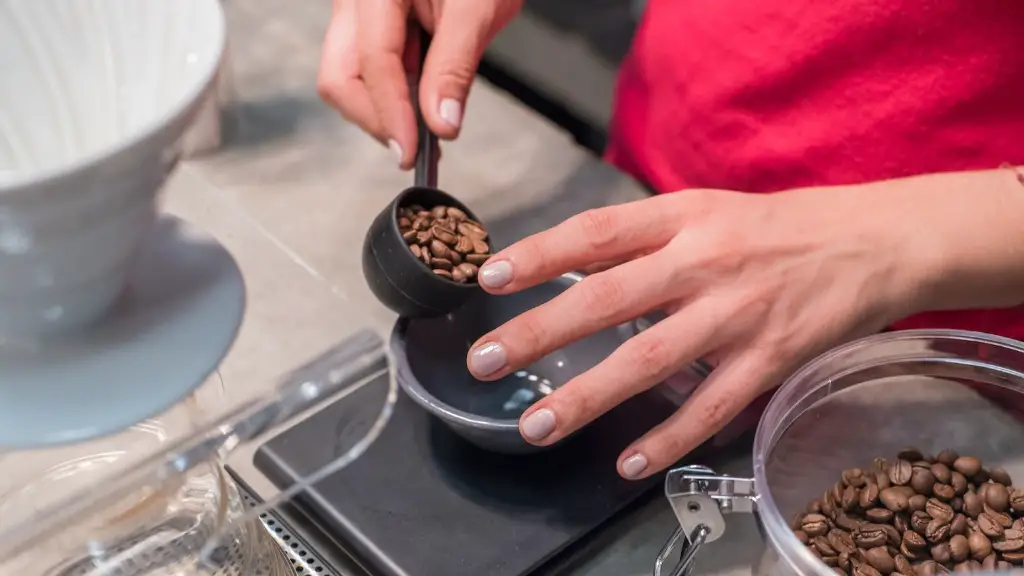Coffee is the go-to drink for many women, even those who are pregnant. It’s no surprise, as coffee has long been Europe’s favorite beverage. But is coffee safe for pregnant women? Does drinking coffee affect pregnancy? It’s important to know the answer to this question, as there is much debate around coffee consumption while pregnant.
Doctors, midwives and other health professionals will usually advise pregnant women to cut down on coffee. This is because it may contain caffeine and other chemicals that can be harmful to a developing baby. Caffeine is found in coffee, tea, energy drinks, and chocolate. It can cross the placenta, meaning the baby will also be exposed to it. Although caffeine does not directly cause any permanent damage to the baby, it is still recommended that pregnant women avoid too much of it during pregnancy.
Studies have suggested that drinking too much coffee during pregnancy can increase the risk of miscarriage. The risk of miscarriage increases when pregnant women drink more than 200 milligrams (2 cups) of coffee per day. This is because caffeine increases the levels of hormones in the body, which can be dangerous for the developing baby. High levels of caffeine can also lead to symptoms such as insomnia, restlessness, and an increased heart rate.
Studies have shown that drinking large amounts of coffee during pregnancy can also increase the risk of premature birth and low birth weight. Babies who are born prematurely suffer from breathing problems, vision problems, and other health problems. As most of these problems cannot be corrected, it is important for pregnant women to be aware of the risks associated with drinking too much coffee. It is recommended that pregnant women limit their caffeine intake to less than 200 milligrams (2 cups) per day.
Furthermore, drinking coffee during pregnancy may also increase the risk of birth defects. Studies have shown that drinking more than 200 milligrams of coffee per day increases the risk of certain birth defects such as neural tube defects. Despite the fact that these birth defects can be treated, it is still important for pregnant women to be aware of the potential risks associated with drinking too much coffee.
Finally, there is evidence that drinking coffee during pregnancy may also increase the risk of stillbirth. Studies have shown that drinking more than 200 milligrams of coffee per day can double the risk of stillbirths. This is because caffeine increases the levels of the stress hormone cortisol in the body, which can lead to complications. It is therefore important for pregnant women to ensure they limit their caffeine intake to less than 200 milligrams (2 cups) per day.
What Are The Alternatives To Coffee?
Caffeine-free beverages are a great alternative to coffee for pregnant women. These include herbal teas, juices, or flavored waters. Other caffeine-free alternatives to coffee include rooibos tea, yerba mate, and chamomile tea. All these beverages are not only a healthier alternative to coffee, but also provide nutrients that are essential for a healthy pregnancy. For example, rooibos tea is rich in vitamins and minerals and has anti-inflammatory properties.
Pregnant women can also opt for decaffeinated coffee which has less than 1 percent of caffeine. Decaffeinated coffee is a great choice for those who want to reduce their caffeine intake, but still enjoy the taste of coffee. Decaffeinated coffee can be enjoyed in moderation during pregnancy, as it has significantly lower levels of caffeine than regular coffee.
Finally, pregnant women who want to enjoy the taste of coffee without caffeine can opt for herbal coffees. These are made from a variety of herbs and spices, such as chicory, dandelion root, and carob. Herbal coffees can provide many health benefits, as they are rich in vitamins, minerals, and antioxidants.
What Are The Health Benefits Of Coffee During Pregnancy?
Despite the potential risks associated with drinking coffee during pregnancy, there are also some potential health benefits. Studies have shown that drinking moderate amounts of coffee (less than 200 milligrams per day) can reduce the risk of gestational diabetes and preeclampsia.
Drinking moderate amounts of coffee is also associated with a lower risk of low birth weight, as well as a reduced risk of preterm labor. Coffee is also a great source of antioxidants, which can help to protect the body from free radicals and reduce inflammation.
There is also evidence that drinking moderate amounts of coffee may lower the risk of depression during pregnancy. Studies have shown that drinking up to 2 cups of coffee per day can reduce the risk of depression and anxiety during pregnancy.
Finally, it is important for pregnant women to remember to drink plenty of water. Water can help to keep the body hydrated and also helps to flush out toxins from the body. Water is essential for a healthy pregnancy, as it helps to provide the baby with all the essential nutrients it needs to grow and develop.
How Can Pregnant Women Avoid The Risks Of Drinking Too Much Coffee?
The best way to avoid the risks associated with drinking too much coffee is to limit caffeine intake to under 200 milligrams per day. If this is not possible, then pregnant women should opt for decaffeinated coffee or other caffeine-free beverages. It is also important to avoid energy drinks, which can contain dangerously high levels of caffeine.
It is also important to check food labels and ingredients lists when buying foods or drinks. Some foods, such as chocolates, cakes, and energy bars may contain hidden sources of caffeine. Checking food labels and ingredients lists is an important way for pregnant women to ensure that their caffeine intake is kept to a minimum.
Finally, pregnant women should aim to eat a healthy and balanced diet during pregnancy. There are many foods that are rich in nutrients and can help to reduce the risk of complications during pregnancy. These include fruits, vegetables, wholegrain cereals, and lean proteins.
Do Caffeine Free Substitutes For Coffee Have The Same Benefits?
Caffeine-free substitutes for coffee may not provide the same health benefits as regular coffee. This is because regular coffee contains antioxidants and nutrients, which can help to protect the body and reduce inflammation. Caffeine-free alternatives such as herbal coffees may also contain some beneficial nutrients, but these are usually in lower amounts than those found in coffee.
It is also important to remember that caffeine-free alternatives to coffee may still contain some caffeine. It is therefore important to check labels and ingredients lists when purchasing these products to ensure that the caffeine content is low.
Finally, it is important for pregnant women to remember that caffeine-free options may not taste the same as coffee. Some caffeine-free substitutes such as herbal teas or decaffeinated coffee may have a different taste and texture to regular coffee.
Conclusion
There is much debate around coffee consumption during pregnancy and it is important for pregnant women to be aware of the potential risks and benefits. Although drinking coffee during pregnancy may increase the risk of certain complications, it can also provide some potential health benefits. It is therefore important for pregnant women to ensure they limit their caffeine intake to under 200 milligrams (2 cups) per day, and opt for decaffeinated coffee or caffeine-free alternatives if possible.





